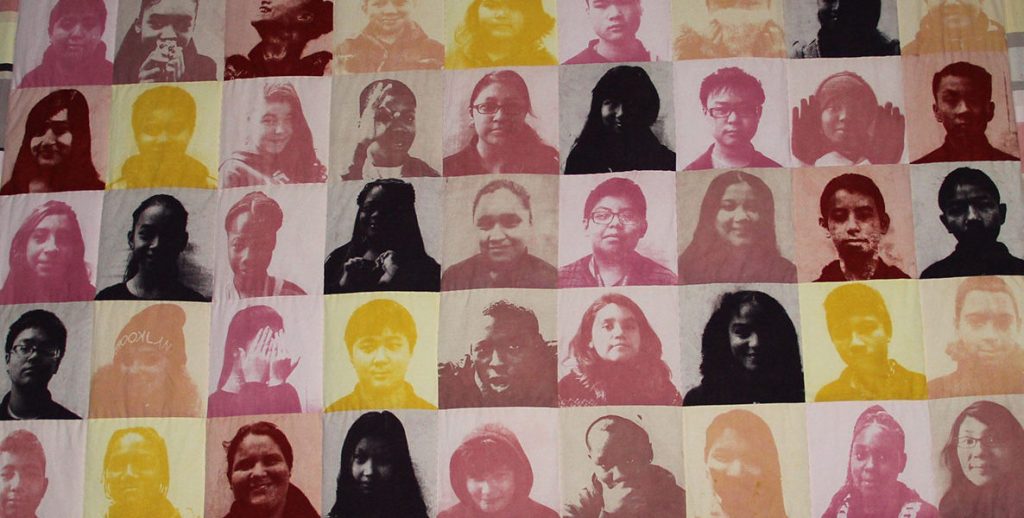Imagine a school with a computer lab filled with new Apple desktops. Full kindergarten to 8th grade services for students with autism spectrum disorders. A nationally recognized rock band. A two-way Spanish immersion program that produces kids who are bilingual and biliterate by second grade.
You’d have to move to the suburbs, or send your kid to a charter, or pay a small fortune for private school. Right? That’s the story everyone tells, anyway, from news reports to (often) fellow parents to realtors, the first encounter many Philadelphians have with a prospective neighborhood.
But a group of about 40 realtors last week came away with a very different story after touring five South Philly elementary schools that many of them—though they also live in the neighborhood—had never seen before: Andrew Jackson, George W. Nebinger, Vare-Washington, Eliza B. Kirkbride, and Southwark. What they learned is what organizers of the tour hope they’ll pass on to their clients: Each of those schools, and others like them, are worth a look.
“A lot of real estate agents, by and large, don’t actually know anything about the catchment schools in the neighborhoods where they are selling homes,” says Mollie Michel, one of the organizers of the tour. “If you spend enough time reading the newspaper you know about this terrible thing, or you know that the state is running the schools, or you know that we have no budget, or you know that Corbett stripped funding from our schools. Based on demand, it’s clear that these real estate agents are hungry for more information about the schools.”
“I distinctly remember my realtor saying to me ‘Don’t worry, Philly has great private schools’,” says Sasha Best, a parent at Adaire Elementary and organizer of a similar River Wards schools tour in October. “The public school wasn’t even mentioned, not even on the table. This is about changing the dialogue, and including our schools in that dialogue.”
The South Philly school tour was part of a growing movement to change the pervasive narrative about Philly public schools, one that is perhaps unknowingly and unintentionally perpetuated by realtors, who often sell neighborhoods by assuring prospective buyers about all the other school choices that are out there. Organizers are not expecting to turn realtors into advocates for District public schools, just to make these schools part of the conversation.
“I distinctly remember my realtor saying to me ‘Don’t worry, Philly has great private schools’,” says Sasha Best, a parent at Adaire Elementary and organizer of a similar River Wards schools tour in October. “The public school wasn’t even mentioned, not even on the table. This is about changing the dialogue, and including our schools in that dialogue.”
![]()
At Vare-Washington the group watched a class incorporate fitness and music in their “Crush” dance program before seeing a brand new library and state of the art computer lab. Vare-Washington and the next school on the tour, Kirkbride, both boasted strong special education programs for autism spectrum disorders. While at Kirkbride, realtors also toured the art studio, led by teacher Peter Metcalfe whose (sometimes 3D) murals adorn the hallways with scenes of jungles and multiculturalism, making the school sometimes feel like an exciting interactive museum. The last stop was Southwark, whose principal Andrew Lukov launched a Spanish-English bilingual curriculum two years ago, that he says has drawn more students to the school from inside and outside the catchment area.
Michel and the other tour organizers were inspired by Katey McGrath, a realtor and a parent of kids who attend a Chestnut Hill public school, who worked with the Mt. Airy Schools Coalition in 2014 to create the first walk-through, a concept familiar to her colleagues, who often go on group tours of new properties. Last October, parents and “Friends of” groups representing schools in the River Wards held their own tour. East Passyunk organizers based their January tour on lessons learned from those that came before; they learned, for example, to have one-pagers on each school, put together by the principal, with direct contact information to learn more. This spring, schools on the west side of Broad Street in South Philly are planning their own version.
For homebuyers (and the realtors selling to them), an improving school is a win-win: Even if they don’t send their children there, good schools help raise property values and make neighborhoods more livable.
If last week’s South Philly tour is any indication, the plan is working.
Deidre Quinn, a longtime city realtor who lives near Jackson, had never been in any of the schools except Nebinger, one time 10 years ago. “The programs have drastically improved since then,” Quinn noted.
In addition to being a real estate agent, Quinn is also a parent. Her older daughter is in middle school at a suburban private school, which, until Tuesday was the path she assumed she’d take for her younger daughter, who will start kindergarten in 2017. Now, Quinn says she’s not ruling out Jackson.
That’s the kind of conversation Michel and other schools advocates want to see perpetuated around the city. And like Quinn, realtors seem willing. Each tour has had a higher attendance than the one before it. And McGrath said that she has noticed substantially more real estate copy and ads include the catchment information for the property, something that she only used to see when it was within the Meredith or Penn Alexander catchment.
“I was particularly struck by how many agents noted that it was the first time they’d ever entered any public school in Philly and how excited they were to be able to more confidently encourage their clients to visit our catchment schools,” Michel says. “This is just another way that we as neighborhood school advocates and parents who send our kids to these schools can get in on the front lines and really change the conversation and give people accurate information.”
Header photo: Melanie Bavaria

